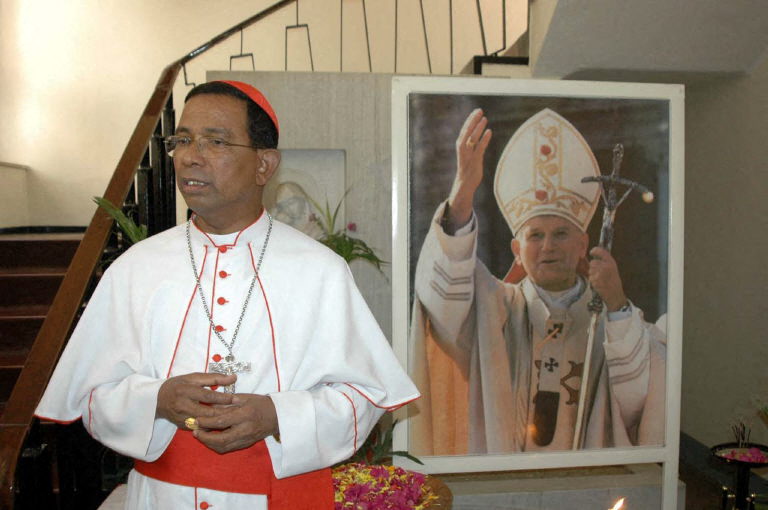India’s first tribal Cardinal, Telesphore Placidus Toppo, Archbishop Emeritus of Ranchi in the eastern state of Jharkhand, passed away on October 4 due to age-related illness.
He was 84 years old and had been bedridden for the past few months, eventually hospitalized at Constant Lievens Hospital in Ranchi.
Ranchi Auxiliary Bishop Theodore Mascarenhas confirmed his passing. Cardinal Toppo had a remarkable religious career spanning 54 years as a priest, 44 years as a bishop, and 19 years as a cardinal.
He served as the Bishop of Dumka from 1978 to 1984 and then as the Archbishop of Ranchi from 1985 to 2018. In 2003, he became the first Indian tribal Cardinal.
Bishop Mascarenhas expressed gratitude on behalf of the Ranchi Archdiocese for Cardinal Toppo’s significant contributions to the development of the Church of Chotanagpur, which encompasses areas of Bihar and Jharkhand.
The state of Jharkhand was created in 2000 after being carved out of Bihar.
Cardinal Toppo held leadership positions within the Conference of Catholic Bishops of India, serving as its President for two terms (2001-2004 and 2011-2013).
He also headed the Catholic Bishops’ Conference of India from 2004 to 2008.
Born on October 15, 1939, in the remote village of Jhargaon, Chainpur parish, Gumla district (now a diocese), Cardinal Toppo came from a humble background.
He belonged to the Oraon tribal family and was the eighth of ten children of Ambrose Toppo and Sophia Xalxo.
Despite facing challenges, including long walks to school, he was determined to pursue his education. His father, a poor farmer, supported his educational aspirations.
His encounter with Belgian Jesuit fathers visiting his village during his childhood inspired his call to the priesthood.
Cardinal Toppo began his journey in St. Albert’s Seminary and later graduated with honors from St. Xavier’s College, Ranchi.
He completed his postgraduate studies in history at the University of Ranchi and continued his philosophical studies at St. Albert’s College, Ranchi. For theological studies, he was sent to the Pontifical Urban University in Rome.
On May 8, 1969, Bishop Franciskus ordained him as a priest in Basel, Switzerland. Upon returning to India, he taught at St. Joseph’s High School, Torpa, eventually becoming its acting principal.
In 1976, he founded the Lievens’ Vocation Centre in Torpa and served as its pioneering director.
On June 8, 1978, he was elected as the Bishop of Dumka, with his Episcopal ordination taking place on October 7, 1978, presided over by late Archbishop Pius Kerketta.
On November 8, 1984, Pope John Paul II nominated him as the Coadjutor Archbishop of Ranchi, and he officially became the Archbishop of Ranchi on August 7, 1985, with his installation ceremony held on August 25 of the same year.
Cardinal Toppo’s remarkable contributions led to his elevation to the College of Cardinals by Pope St. John Paul II on October 21, 2003.
He was the first and only Asian tribal to hold such a prestigious ecclesiastical office. He also participated in the conclave that elected Pope Benedict XVI in April 2005 and the conclave that elected Pope Francis in March 2013.
Throughout his career, Cardinal Toppo held various important roles, including President Delegate of the 11th Ordinary General Assembly of the Synod of Bishops on “The Eucharist: Source and Summit of the Life and Mission of the Church” in October 2005. He also served as a Member of the Council of Cardinals for the Study of Organizational and Economic Affairs of the Holy See.
Pope Francis appointed Cardinal Toppo as his Special Envoy to the XI Plenary Assembly of the Federation of Asian Bishops’ Conferences (FABC), held from November 28 to December 4, 2016, in Colombo, Sri Lanka.
In recognition of his distinguished social work in Jharkhand, Cardinal Toppo received the Jharkhand Ratan Award in 2002.
